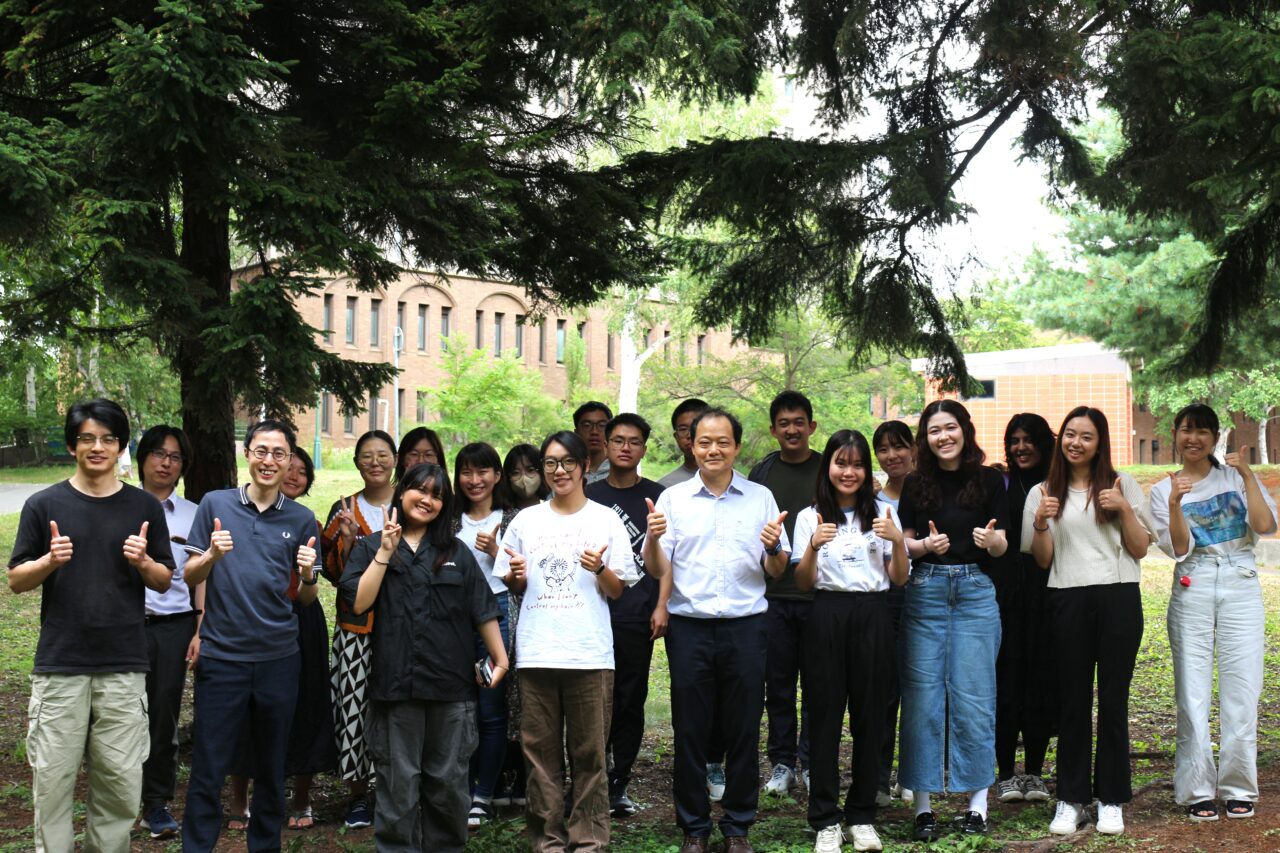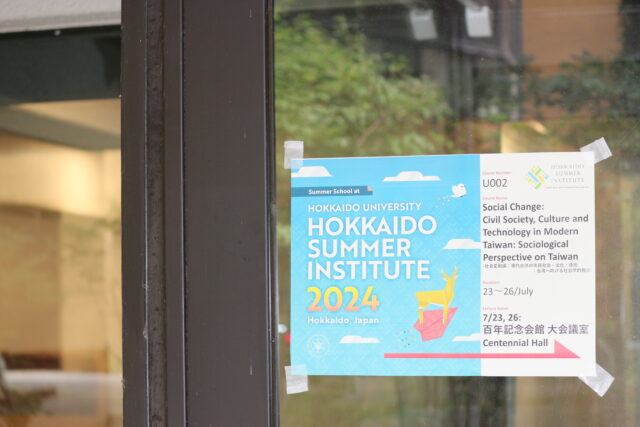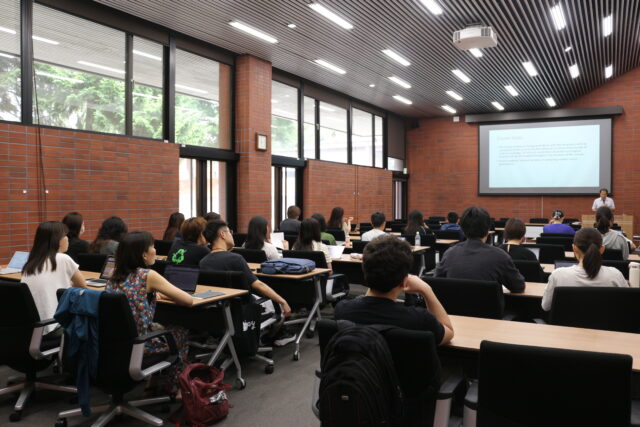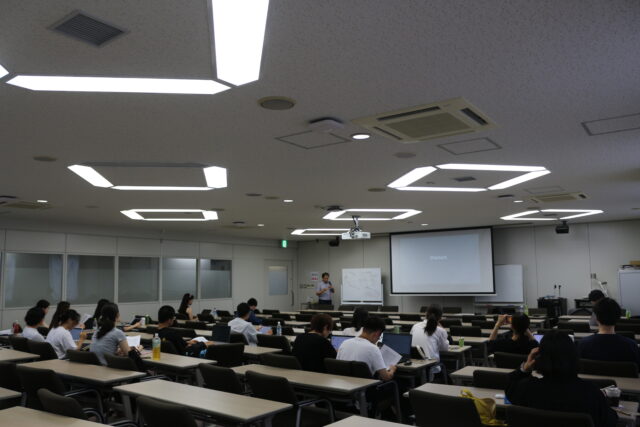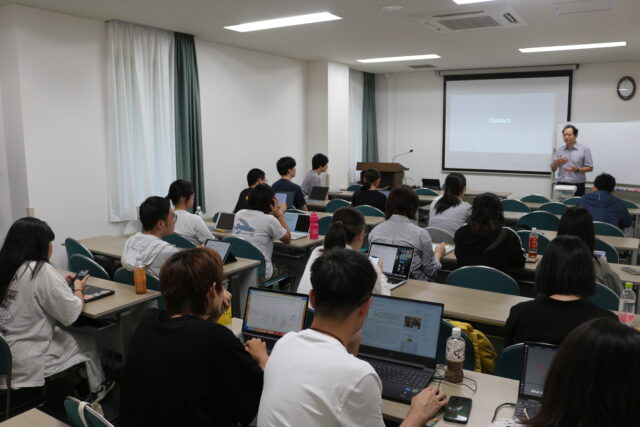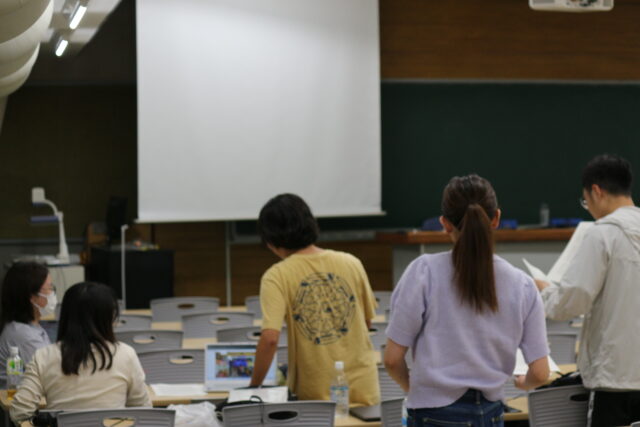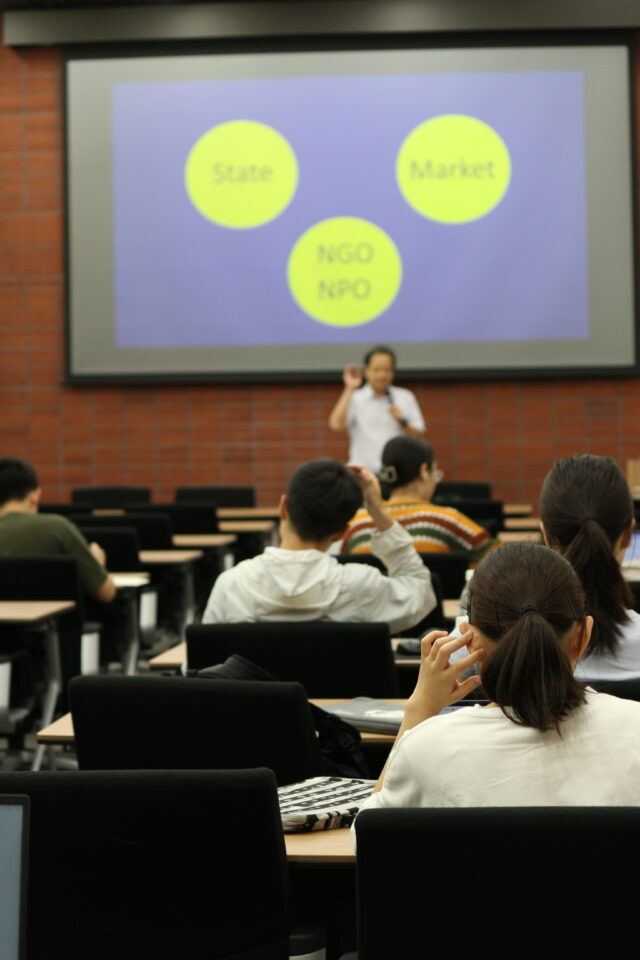Social Change: Civil Society, Culture and Technology in Modern Taiwan: Sociological Perspective on Taiwan, a course offered at the Hokkaido Summer Institute 2024 by the School of Humanities and Human Sciences, was taught over four days from July 23 to 26. This course was offered in person by Associate Professor Ka Shing Ng of the Laboratory of Sociology, Faculty of Humanities and Human Sciences, Assistant Professor Koki Shimizu, and Invited Lecturer Wei Hsian CHI, associate research fellow of the Institute of Sociology, Academia Sinica, Taiwan.
Since only few classrooms were available during the summer term when regular classes were in session, classrooms in the School of Humanities and Human Sciences on the Sapporo Campus of Hokkaido University, classrooms in other schools, and a large conference room in Centennial Hall were used for this course, which was attended by a large number of students.
▼Classroom▼
Tue. Jul. 23rd Large conference room, Centennial Hall
Wed. Jul. 24th 10:30-14:30 W409, Humanities and Social Sciences Classroom Building
14:45-18:00 Meeting room 3, Conference Hall
Thu. Jul. 25th Room 2, Joint Lecture Theaters (Gunkan Auditorium)
Fri. Jul. 26th Large conference room, Centennial Hall
The class began with a self-introduction by Invited Lecturer CHI, followed by an explanation of the course as a whole, and then the lecture began.
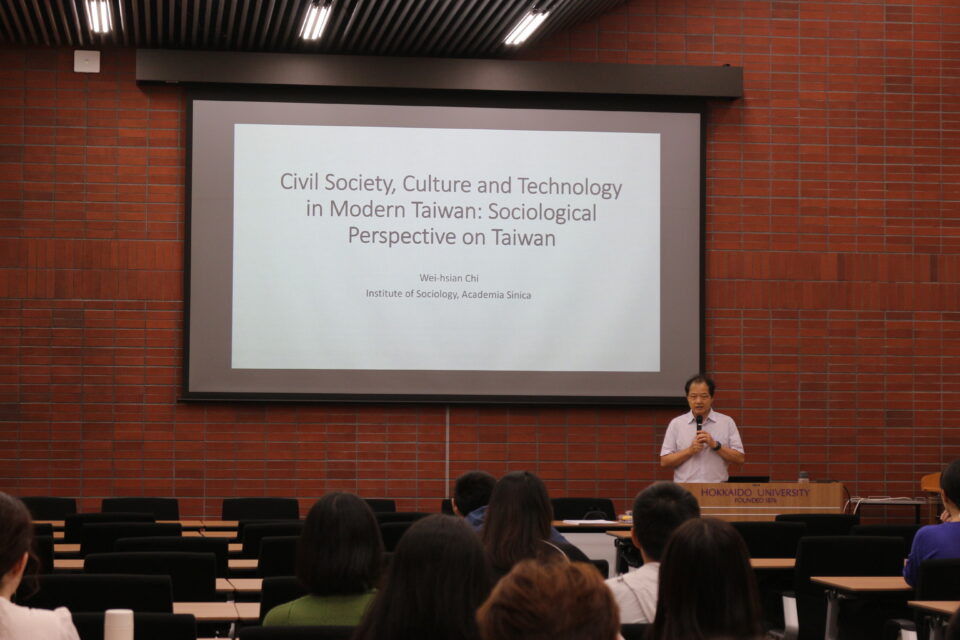
The aim of this course was to provide an overview of the specificity and modernity of Taiwanese society by focusing on three main themes: 1) civil society and publicness, 2) culture and religion, and 3) technosociety. Through mutual exchanges with Japanese students, the course was designed to explore the characteristics of Taiwanese society that reflect the shared homogeneity of East Asia.
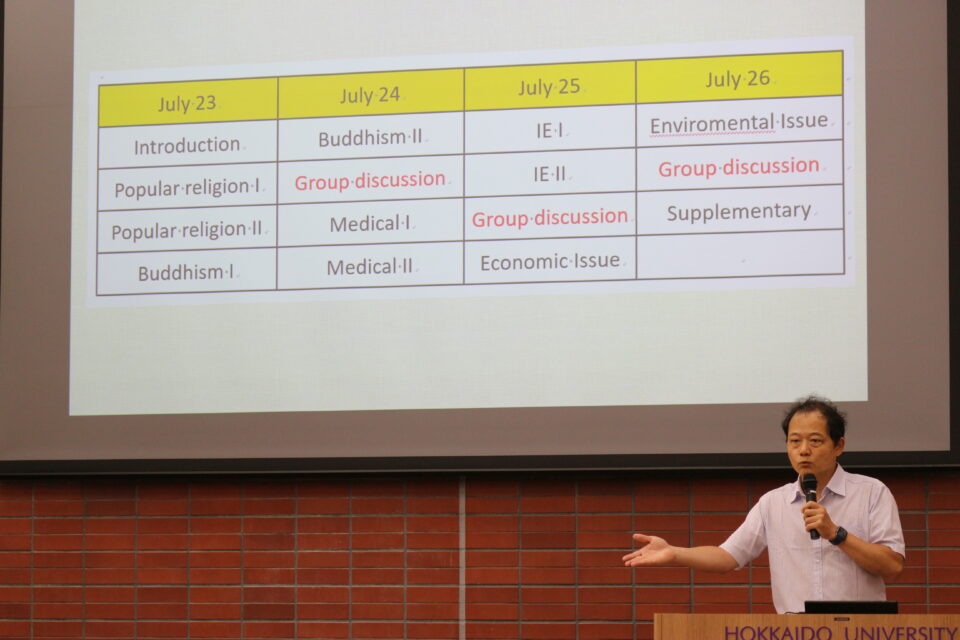
In the first class, the history of Taiwan, both political and economic aspects, was introduced. Politically, the focus spanned a timeline from the mid-17th century, when Spain and the Netherlands held sovereignty, to the 21st century after democratization. Economically, the discussion highlighted the period from the late 19th century, when full-scale infrastructure development began, to the present, emphasizing the rapid development of the IT industry and the promotion of free trade through global links. This was followed by an explanation of the religions commonly practiced in Taiwan, including folk beliefs, Buddhism, Taoism, and Christianity, as well as the history of their dissemination and connections with local communities. Various examples were also presented to discuss pilgrimages and religious ceremonies and processions held across Taiwan, their economic impact on local areas, their role in fostering regional solidarity, and the role of religion in modern society. The discussion also covered the effects of modernization, such as population growth and economic development, and referred to prior research. Over the course of four days, the lectures covered a wide range of topics from both historical and philosophical perspectives. These included Buddhism in Taiwan, the nature of knowledge in sociology, the relationship between technological development and healthcare, institutional ethnography, as well as discussions on physicians and environmental activism. For the students from Japan and various other countries, group discussions about each theme against the background of their own culture, religion, local community, and politics, seemed to lead to new discoveries and a deeper understanding. Through the lectures and discussions, this course, which included many international students, provided a valuable opportunity to interact with students from other universities.
On the final day, each group selected one theme from the diverse topics covered in the lectures, such as popular religion, Buddhism, medical issues, economic issues, and environmental issues, and presented the content of their discussions.
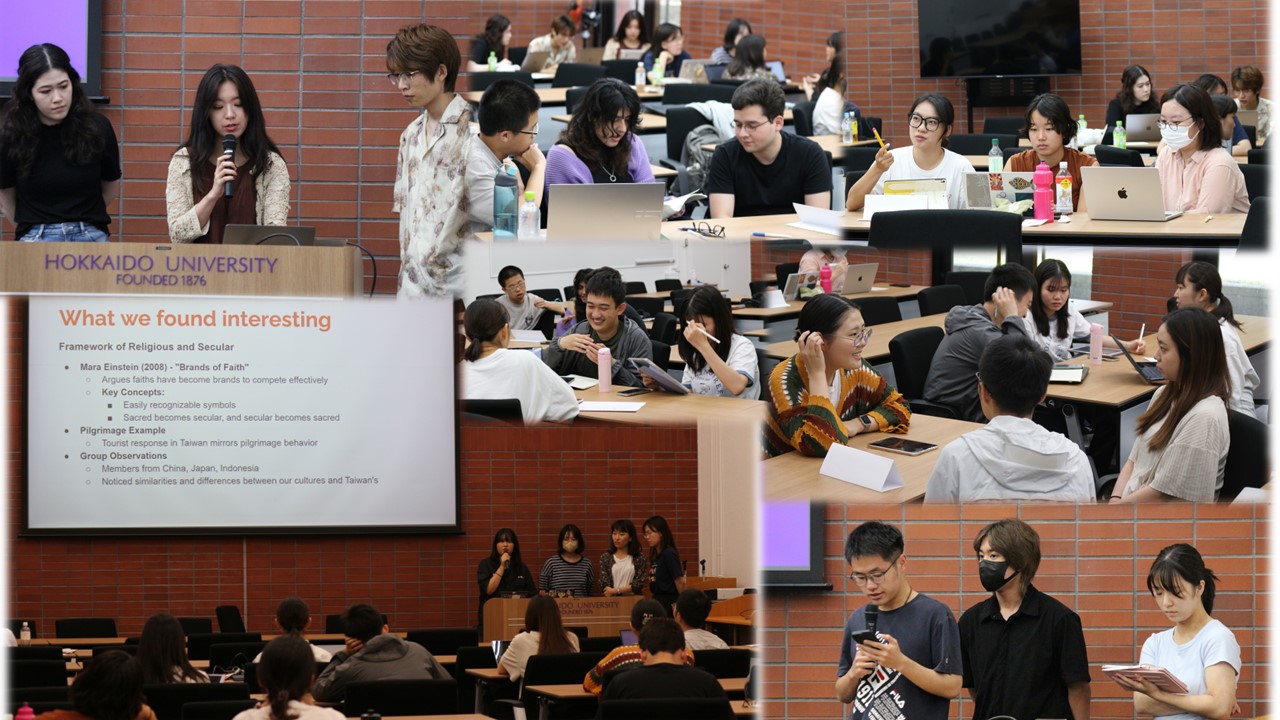
In next summer’s HSI 2025, the course “Social Change: Gender Studies 2025” is scheduled to be offered as a continuation of the highly acclaimed “Social Change: Gender Studies” taught at HSI 2023. Professor NAKANO Lynne Yukie of the Chinese University of Hong Kong will again be invited as guest lecturer, and collaborate with Associate Professor Ka Shing Ng (Laboratory of Sociology). Please look forward to it!
